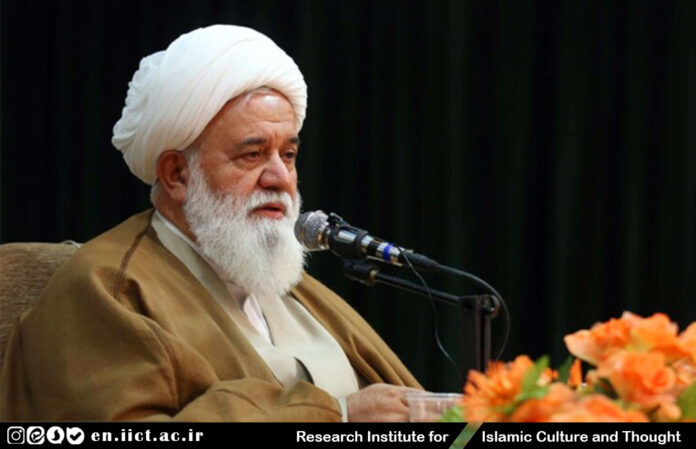According to the public relations report from the Research Institute for Islamic Culture and Thought, the unveiling ceremony for this encyclopedia took place on the 17th anniversary of the passing of the eminent scholar Allameh Ma’rifat. Distinguished scholars from Iran and the Islamic world, including Ayatollah Reza Ostadi, Ayatollah Ali Akbar Rashad, Hujjat al-Islam Mehdi Rostamnejad, and Abdul Karim Bahjatpour, participated in the event, along with the remarks of Professor Nour Al-din Aboulihya from Algeria, held on January 17, 2024, at the Research Institute for Islamic Culture and Thought.
Ayatollah Ali Akbar Rashad, the head and founder of the institute, expressed that Allameh Ma’rifat’s works in Quranic sciences and introductory studies have become invaluable for the Shia community. He added that besides his scholarly and intellectual contributions, Allameh Ma’rifat has numerous students who have made notable contributions in their respective fields.
Highlighting the positive initiatives in the foundations of Islamic studies, Ayatollah Rashad mentioned the commendable efforts of Ayatollah Ma’rifat in the field of Islamic basics.
Regarding the compilation of “Tafsir Athari Jami” he acknowledged the substantial efforts of Hujjat al-Islam Rostamnejad and Hujjat al-Islam Bahjatpour, expressing gratitude for their effective contributions.
Ayatollah Rashad emphasized that the compilation is nearly one-third complete, expressing hope for its diligent continuation and eventual completion. He also highlighted a fundamental shortcoming in Quranic matters, noting the lack of a specialized Quranic system, and this necessitates actions to address existing deficiencies.
Rashad, referring to the scarcity of scholarly activities using a comparative and analytical approach, stated that This Comprehensive Commentary (Tafsir athari jami) by Ayatollah Ma’rifat stands out as a remarkable work in this regard.
In conclusion, the member of the Supreme Council of the Cultural Revolution highlighted the increased collaborative efforts of seminaries and research-oriented students to respond adequately to the vital and necessary needs of today’s society.




